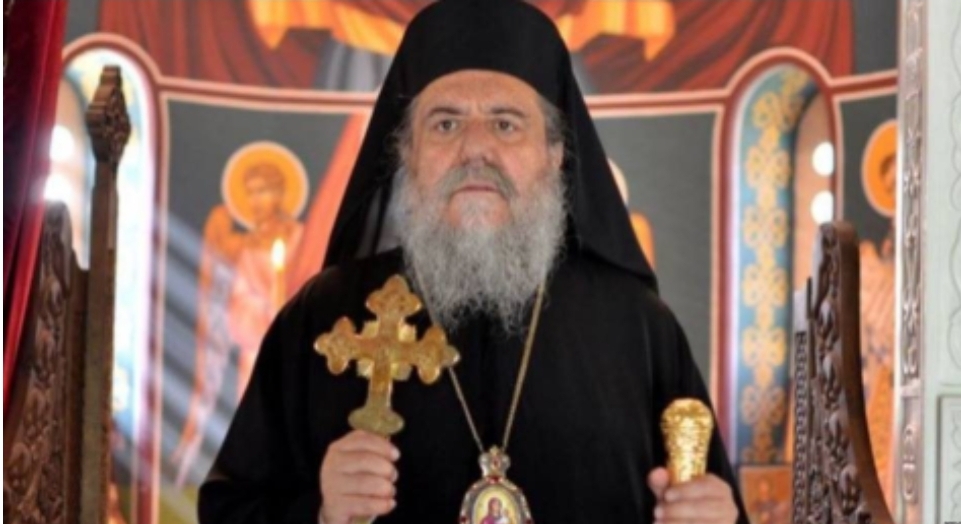Metropolitan Agathangel of the Vardar Diocese of the Macedonian Orthodox Church–Ohrid Archbishopric (MOC-OA) has publicly called for the annulment of the 2018 Prespa Agreement, reigniting political and religious tensions in North Macedonia. The call, delivered through a guest column by Ivon Velichkovski and endorsed by Agathangel, has been widely interpreted as a direct challenge to the country’s Euro-Atlantic orientation and a growing concern over the role of religious institutions in secular governance.
In the column, Agathangel denounces the Prespa Agreement as a “disaster” and claims that it was imposed “violently and heartlessly” and without democratic legitimacy. He argues that the agreement dismantled the foundations of Macedonian statehood and identity.
“The vote is sacred,” he says, condemning those who “avoided using the real name of the country” while promoting public apathy as a political tool. “Their only hope was that the Macedonian people would eventually accept the dead end and forget the shame.”
The metropolitan criticizes the European Union for what he views as a moral collapse and submission to Greek and Bulgarian nationalism, writing that:
“Europe of Hegel, Kant, Hugo, and Verdi has become the Europe of Zhivkov, Karavangelis, and their bodyguards.”
The piece argues that the EU has abandoned its founding values and now facilitates the erosion of Macedonian sovereignty through “aggression disguised as diplomacy.”
Analysts and civil society figures responded swiftly, accusing the bishop of overstepping the boundaries of church authority.
Calls were made for political parties—including VMRO-DPMNE and SDSM—and the church’s Synod to publicly distance themselves from Agathangel’s position. Failure to do so, critics argue, would signal tacit support for undermining state agreements and constitutional order.
Prespa Agreement under pressure
The Prespa Agreement resolved a decades-long name dispute between Skopje and Athens, enabling North Macedonia’s accession to NATO and unblocking its EU path. While backed by the international community, it remains deeply controversial among nationalist and conservative groups who see it as a surrender of identity.
Agathangel’s call echoes this sentiment, stating:
“The name of the state, Macedonia, is the identity of the people living in it… everything started with the Prespa Agreement and everything must end with its annulment.”
Velichkovski’s article further argues that the Agreement was part of a broader international agenda to “redefine” the region along lines unfavorable to Macedonian national interests.
Church and geopolitics
The column also touches on ecclesiastical tensions, notably the ongoing debate over the autocephaly of the MOC-OA. It criticizes the initiative for mutual recognition between MOC-OA and the Orthodox Church in America (OCA), calling it a “Russian-led project” intended to bypass the Ecumenical Patriarchate.
Critics say this alignment draws North Macedonia into the wider geopolitical rivalry between Moscow and the West in the Orthodox Christian world.
“The MOC is being inserted directly into the Russia–Fanar conflict,” one analyst noted, referring to the Ecumenical Patriarchate’s strained relations with the Russian Orthodox Church.
What’s next?
Velichkovski ends the piece with a rallying cry for Macedonian unity, calling on citizens, politicians, and religious believers to “name things by their real name” and resist “the black plague coming from Europe.” He urges the government to take bold action and “immediately annul the Prespa Agreement.”
While Agathangel’s views have long aligned with nationalist currents in Macedonian politics, the explicit public call for state action is viewed as a notable escalation, potentially setting a precedent for deeper religious involvement in national policy debates.
Western diplomats and civil society leaders are now watching closely for official responses from the government and major political parties.



